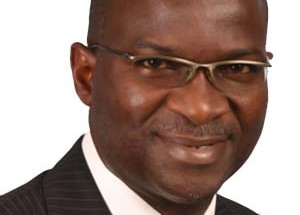Second Texas nurse with Ebola transferred to special facility
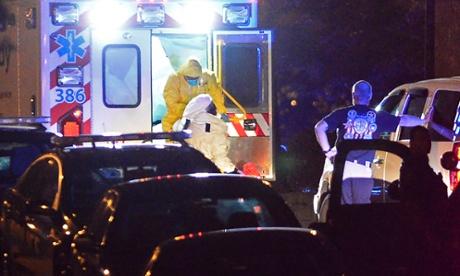
konknaijaboy | On 16, Oct 2014
- Concerns over US response to the outbreak intensify
- Nurse told the CDC she had a fever but was still allowed to fly
- Authorities tracking down 132 other people on board flight
- Barack Obama cancels engagements to focus on crisis
- Unions question procedures at Dallas hospital
The second nurse diagnosed with Ebola in Texas was transferred from Dallas to a special bio-containment unit in Atlanta, officials announced on Wednesday, as they acknowledged failings in the response to the arrival of the virus in the US.
The Centers for Disease Control and Prevention (CDC) also said that the 29-year-old nurse, Amber Vinson, flew on a commercial flight from Cleveland, Ohio to Dallas with a low-grade temperature a day before she was diagnosed. While in Ohio, she also reportedly travelled from Cleveland to Akron.
Concerns about the US response to the crisis intensified on Wednesday night when it was reported that Vinson told the CDC that she had a slight fever before she boarded the flight but was not told to stay put.
Citing a federal source, CNN reported that the nurse said she had a temperature of 99.5F (37.5C) before boarding the flight on 13 October. But since that was below the CDC’s temperature threshold of 100.4F, “she was not told not to fly”.
Vinson is the second healthcare worker to have contracted Ebola at Texas Health Presbyterian hospital in Dallas, which treated Thomas Eric Duncan, a Liberian who was the first patient in the US to be diagnosed with Ebola. Another nurse, 26-year-old Nina Pham, was diagnosed at the weekend. Both had cared for Duncan, who died in an isolation ward on 8 October.
Vinson was transferred to Emory University Hospital in Atlanta by air ambulance on Wednesday night and will be treated in a special isolation unit.
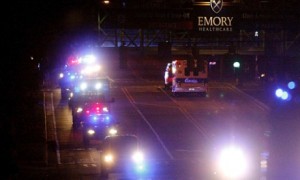
An ambulance carrying Ebola victim Amber Vinson arrives with a security detail at Emory University Hospital in Atlanta on Wednesday night. Photograph: Tami Chappell/Reuters
Television images showed Vinson walking from an ambulance to an Emory hospital door with an escort, both of them in protective clothing.
The second infection called into question the Dallas hospital’s ability to protect staff treating Ebola patients, and raised concerns about the quality of the initial response to Duncan’s diagnosis by state and federal agencies.
The largest nurses’ union in the US on Wednesday assailed Texas Health Presbyterian for the way in which Duncan’s case was handled in the time from his arrival at the hospital to his diagnosis.
Dr Tom Frieden, the CDC director, conceded on Wednesday that Vinson should not have been allowed to take the flights to Ohio. “We will, from this moment forward, ensure that no other individual who is being monitored for exposure undergoes travel in any way other than controlled movement,” Frieden said.
The CDC was attempting to contact the 132 passengers and crew who were aboard Vinson’s return flight to Dallas – Frontier Airlines flight 1143 from Cleveland, Ohio. But Frieden said he believed the risk to passengers was low because Vinson’s symptoms did not present themselves until the following day.
The US secretary of health and human services, Sylvia Burwell, said that Vinson will be transported to Emory University hospital in Atlanta, which has successfully treated two Ebola patients and is caring for a third, an unidentified American doctor who contracted the disease while working in the Sierra Leone.
Before Duncan’s diagnosis, all Ebola patients in the US were treated in special bio-containment units in Atlanta and Omaha.
President Barack Obama was briefed by the relevant members of his cabinet about the country’s Ebola response on Wednesday afternoon. He also cancelled visits to Rhode Island and New York planned for Thursday in order to concentrate on the Ebola outbreak.
“I am absolutely confident that we can prevent a serious outbreak of the disease here in the United States, but it becomes more difficult to do so if this epidemic of Ebola rages out of control in West Africa,” he told reporters.
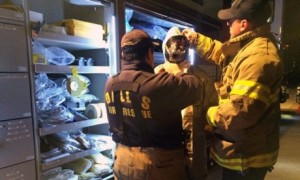
Members of Dallas Fire-Rescue Haz Mat Unit prepare to decontaminate common areas near the apartment of a second healthcare worker who has tested positive for Ebola. Photograph: Sana Syed/AP
Texas governor Rick Perry, who is cutting short a trip to Europe to deal with the unfolding situation in Dallas, said in a statement on Wednesday: “This is the first time that our nation has had to deal with a threat such as this. Everyone working on this challenge – from the medical professionals at the bedside to the public health officials addressing containment of the infection – is working to end the threat posed by this disease.”
According to Frieden, the two nurses who contracted Ebola in Dallas had “extensive” contact with Duncan in the days before he was diagnosed, when he was extremely ill, excreting large quantities of highly contagious body fluids.
“Our investigation increasingly suggests that the first several days before the patient was diagnosed appear to be the highest-risk period,” Frieden said.
Information from medical records suggested that the team of healthcare workers who treated Duncan had exposed skin while working in the quarantine unit during the three-day window between when he was admitted and when he was diagnosed.
“Were protocols breached? The nurses say there were no protocols,” said National Nurses United Co-President Deborah Burger in a call with reporters Wednesday.
Burger said nurses who work at Texas Health Presbyterian reported that Duncan was not immediately placed in isolation upon his arrival at the hospital on 28 September. They said Duncan, who at that point was very ill, was left for several hours in an area where other patients were present.
Burger also said the union was told the nurses who initially treated Duncan wore only generic gowns, three pairs of gloves and surgical masks, and were not given surgical booties. They had the option to wear a full-face mask, but one was not initially required.
The nurses said they were eventually given better gowns, but the garments still exposed their necks, part of their heads and their scrubs from the knees down. To protect the exposed parts of their body, the nurses said, they were instructed to wrap medical tape around their necks. It is not clear what healthcare workers treating patients suspected or confirmed to have Ebola in Dallas are currently required to wear.
In a letter addressed to Obama, the union asked him to take executive action to keep nurses and all healthcare workers safe. They’re asking that every healthcare worker be required to wear a Hazmat suit when treating an Ebola patient, and for hospitals where they are being treated to be compelled to meet the same standards of care as the nation’s special bio-containment centers.
The 77 healthcare workers who worked in the quarantine room with Duncan or handled samples of his blood were initially instructed to monitor themselves for symptoms, Frieden said. After Pham was diagnosed, the healthcare workers were placed under “active monitoring”, which requires a twice daily temperature check by a public health official. At that point, Vinson had already left Texas and traveled to Ohio.
Frieden said three people who may have made direct contact with Vinson have been identified and are being actively monitored. Officials are also monitoring one person who may have made direct contact with Pham, as well as her dog.
Pham was in “improved condition” Wednesday, according to Frieden, while Vinson was “ill but clinically stable”.
Related Posts
Kanye West Says President Obama “Used” Him... November 25, 2013 | konknaijaboy
US Ebola patient Thomas Duncan dies in hospital... October 8, 2014 | konknaijaboy
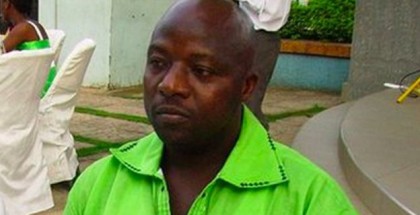
Meet the man who tamed Nigeria’s most lawless city... October 25, 2014 | konknaijaboy
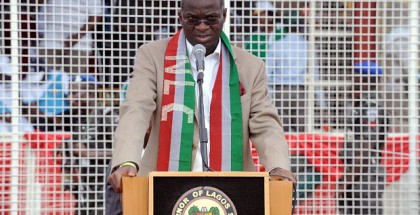
Video: Davido US Tour, New York | Apology To Fans... March 30, 2014 | konknaijaboy

Ebola And Religious Opportunists, By Rolu Adebola... August 12, 2014 | konknaijaboy
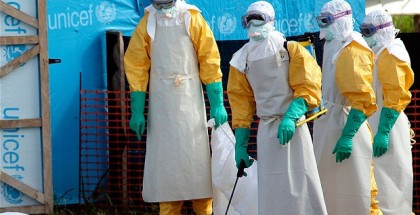
Adele, Beyonce to perform at Michelle Obama’s 50th birthday party... March 11, 2013 | konknaijaboy

‘Time’ names ‘Ebola fighters’ as Person of the Year... December 11, 2014 | konknaijaboy
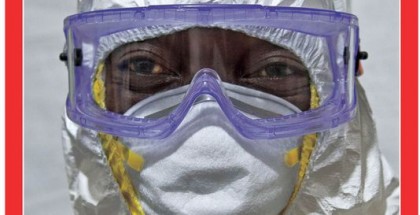
#Ebola: For the Records …Our True Heroines /Heroes on ‘Ebola’ ... October 3, 2014 | konknaijaboy
